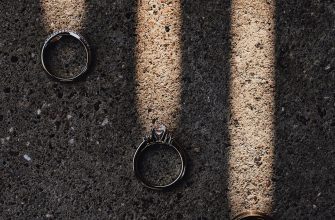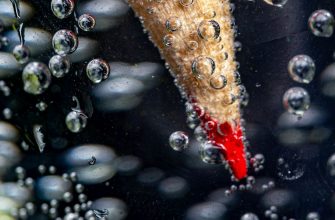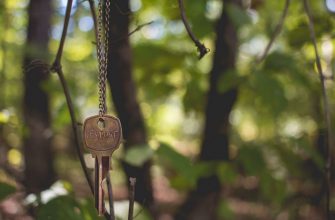ЧИТАТЬ КНИГУ ОНЛАЙН: DOCTOR IN THE HOUSE
НАСТРОЙКИ.
СОДЕРЖАНИЕ.
СОДЕРЖАНИЕ
DOCTOR IN THE HOUSE
First published in 1952
‘A parcel of lazy, idle fellars, that are always smoking and drinking, and lounging…a parcel of young cutters and carvers of live people’s bodies, that disgraces the lodgings.’ _Bob Sawyer’s landlady in_ PICKWICK PAPERS
St. Swithin’s Hospital does not exist; neither do its staff, students, nor patients.
The large and completely unused set of surgical instruments that my father kept in his consulting-room held for the old gentleman the melancholy fascination of a hopefully gathered layette to an ageing childless wife. For twenty years he had not troubled to exercise the self-deception that he might one day come to use them. They lay in the slots of their metal trays, fitting in with each other like the pieces of a Chinese puzzle. There was a sharp-toothed circular trephine for boring holes in the skull; bone forceps like a pair of shiny pliers; a broad hacksaw for amputations; scissors with long, sharp blades; probes, trocars, and bistouries; and a row of scalpels as impotent as a line of ceremonial swords.
The instruments were in a heavy black wooden box with his name in copperplate script on its tarnished metal label. He had stowed it away some years ago at the bottom of a tall cupboard in the corner, where it had become silted over with old medical journals, out-of-date diaries, and bright advertisements from the big drug firms that he had slung in there from time to time with the vague belief that he might want to refer to them one day. Occasionally, rummaging his way through the dusty papers, he would uncover the box and light up in himself a momentary glow of frustration: he had once been convinced he was going to be a great surgeon, and the instruments were an expensive gift from his admiring mother the day he qualified as a doctor.
My grandparents were, unhappily, the only ones to share his confidence in his professional destination. The first step in becoming a surgeon of even mediocre ability is the acquisition of the Fellowship of the Royal College, an examination he sat regularly twice a year for six years before he faced up to the truth that his ability was not a powerful enough propellant for his ambition. His history after that was the not disagreeable one of a good many other unsuccessful young surgeons: he married and went into general practice, in the provinces.
When he saw the brass plate being screwed on to his new doorpost he recognized it as the coffin-lid of his surgical aspirations. For a few months he was bitter at his abandonment of specialization, but his resentment was rapidly smoothed down by the heavy planes of domesticity, busy practice, and the momentous trivia of provincial social life. He became a prosperous, and even fairly efficient, general practitioner, and reflected on his dead ambitions only when he came across his case of instruments or thought seriously about the education of his son.
Like most doctors’ children, I had from my earliest schooldays come to look upon a medical qualification like a hereditary title. Graduation seemed a future occurrence over which I had no control; indeed, neither my parents nor myself contemplated my earning a living by any other means. My father sometimes wondered timidly if I might fulfil his own surgical hopes, but experience had made him guarded in predicting his son’s postgraduate attainments. I had certainly not demonstrated in adolescence any aptitude for my already settled career. Up to the age of six I had a habit of pulling to pieces birds and small mammals ingeniously trapped in the garden, and this was thought by my parents indicative of a natural inclination towards the biological sciences. The practice of medicine was to me no more than a succession of mysterious people coming twice a day through the front door, and the faint tang of antiseptic which had been in my nostrils as long as I could remember, like the scent of the sea to a fisherman’s son.
Once my father stood me up on his leather examination couch, on which the most respected bodies in the district had lain in their forbidding nakedness, and showed me the framed photograph that hung above it. It was the rugby team at his old hospital, the year he had managed to scrape into the side owing to a fortunate attack of diphtheria in the regular wing threequarter.
‘Which one’s you, daddy?’ I asked, running my forefinger along the double row of solemn young men in shorts.
He indicated a thin fellow at the end of the back row.
‘Good old St. Swithin’s!’ he muttered sadly. ‘You’ll be there one day, my lad. And mind you get in the first fifteen like your father did.’
His love for his old hospital, like one’s affection for the youthful homestead, increased steadily with the length of time he had been shot of it. As a medical student, he had felt a surge of allegiance to the place only for an hour or so a week on the football field; now it represented a glowing period in his life when he was single, irresponsible, and bouncing with ambition. I grew into the impression that St. Swithin’s combined the medical efficiency of the Mayo Clinic with the teaching of Hippocrates and the recreational facilities of the Wembley Stadium. For most of my schooldays the place was an ill-defined but agreeable and definite destination, like Heaven, and it was not until I found myself on the point of going there that I troubled to crystallize my thoughts about it.
St. Swithin’s was, in fact, an undistinguished general hospital which spread its grey, insanitary-looking walls across a grimy section of North London. It was not even one of the oldest hospitals in the Metropolis, and as age is esteemed in England as the first of the virtues, this alone imbued the staff and students with a faint sense of inferiority. St. Swithin’s did not possess the proud antiquity of St. Bartholomew’s, which for several centuries looked on to the crisp green of Smithfield and the sweet waters of the Fleet tumbling unconfinedly into the Thames; nor was it as ancient as St. Thomas’s over the River, which was already old when Shakespeare came to the Globe. Its origins were obscure, but there was a tradition that it was founded to deal with the outbreak of syphilis that rolled over Europe after the discovery of America, whence it had been imported by Columbus’s sailors (so setting a persistent maritime habit). St. Swithin’s had, however, been in existence sufficiently long for Londoners to accept it as one of the settled institutions of their city that seemed completely reliable, like Westminster Bridge or St. Paul’s. It now attended only to the pale inhabitants of the streets crammed against its walls, to whom it had been for three or four generations simply ‘The Hospital,’ a place you went into and either got better or died according to your luck.
St. Swithin’s was heavily disappointing. It was like the time I was taken to the Zoo to see my first elephant: it was distinctive enough, but not nearly so large, clean, and dignified as I had imagined.
I walked gingerly inside the forecourt, which was separated from the main road by a long line of heavy iron railings and a gatehouse. The court contained a few plane trees and a patch of pale grass in the centre, and a pair of large black statues representing St. Swithin’s most renowned sons. On the right of the gate as you went in was
Рассказ doctor in the house
St. Swithin’s Hospital does not exist; neither do its staff, students, nor patients.
The large and completely unused set of surgical instruments that my father kept in his consulting-room held for the old gentleman the melancholy fascination of a hopefully gathered layette to an ageing childless wife. For twenty years he had not troubled to exercise the self-deception that he might one day come to use them. They lay in the slots of their metal trays, fitting in with each other like the pieces of a Chinese puzzle. There was a sharp-toothed circular trephine for boring holes in the skull; bone forceps like a pair of shiny pliers; a broad hacksaw for amputations; scissors with long, sharp blades; probes, trocars, and bistouries; and a row of scalpels as impotent as a line of ceremonial swords.
The instruments were in a heavy black wooden box with his name in copperplate script on its tarnished metal label. He had stowed it away some years ago at the bottom of a tall cupboard in the corner, where it had become silted over with old medical journals, out-of-date diaries, and bright advertisements from the big drug firms that he had slung in there from time to time with the vague belief that he might want to refer to them one day. Occasionally, rummaging his way through the dusty papers, he would uncover the box and light up in himself a momentary glow of frustration: he had once been convinced he was going to be a great surgeon, and the instruments were an expensive gift from his admiring mother the day he qualified as a doctor.
My grandparents were, unhappily, the only ones to share his confidence in his professional destination. The first step in becoming a surgeon of even mediocre ability is the acquisition of the Fellowship of the Royal College, an examination he sat regularly twice a year for six years before he faced up to the truth that his ability was not a powerful enough propellant for his ambition. His history after that was the not disagreeable one of a good many other unsuccessful young surgeons: he married and went into general practice, in the provinces.
When he saw the brass plate being screwed on to his new doorpost he recognized it as the coffin-lid of his surgical aspirations. For a few months he was bitter at his abandonment of specialization, but his resentment was rapidly smoothed down by the heavy planes of domesticity, busy practice, and the momentous trivia of provincial social life. He became a prosperous, and even fairly efficient, general practitioner, and reflected on his dead ambitions only when he came across his case of instruments or thought seriously about the education of his son.
Like most doctors’ children, I had from my earliest schooldays come to look upon a medical qualification like a hereditary title. Graduation seemed a future occurrence over which I had no control; indeed, neither my parents nor myself contemplated my earning a living by any other means. My father sometimes wondered timidly if I might fulfil his own surgical hopes, but experience had made him guarded in predicting his son’s postgraduate attainments. I had certainly not demonstrated in adolescence any aptitude for my already settled career. Up to the age of six I had a habit of pulling to pieces birds and small mammals ingeniously trapped in the garden, and this was thought by my parents indicative of a natural inclination towards the biological sciences. The practice of medicine was to me no more than a succession of mysterious people coming twice a day through the front door, and the faint tang of antiseptic which had been in my nostrils as long as I could remember, like the scent of the sea to a fisherman’s son.
Once my father stood me up on his leather examination couch, on which the most respected bodies in the district had lain in their forbidding nakedness, and showed me the framed photograph that hung above it. It was the rugby team at his old hospital, the year he had managed to scrape into the side owing to a fortunate attack of diphtheria in the regular wing threequarter.
‘Which one’s you, daddy?’ I asked, running my forefinger along the double row of solemn young men in shorts.
He indicated a thin fellow at the end of the back row.
‘Good old St. Swithin’s!’ he muttered sadly. ‘You’ll be there one day, my lad. And mind you get in the first fifteen like your father did.’
His love for his old hospital, like one’s affection for the youthful homestead, increased steadily with the length of time he had been shot of it. As a medical student, he had felt a surge of allegiance to the place only for an hour or so a week on the football field; now it represented a glowing period in his life when he was single, irresponsible, and bouncing with ambition. I grew into the impression that St. Swithin’s combined the medical efficiency of the Mayo Clinic with the teaching of Hippocrates and the recreational facilities of the Wembley Stadium. For most of my schooldays the place was an ill-defined but agreeable and definite destination, like Heaven, and it was not until I found myself on the point of going there that I troubled to crystallize my thoughts about it.
St. Swithin’s was, in fact, an undistinguished general hospital which spread its grey, insanitary-looking walls across a grimy section of North London. It was not even one of the oldest hospitals in the Metropolis, and as age is esteemed in England as the first of the virtues, this alone imbued the staff and students with a faint sense of inferiority. St. Swithin’s did not possess the proud antiquity of St. Bartholomew’s, which for several centuries looked on to the crisp green of Smithfield and the sweet waters of the Fleet tumbling unconfinedly into the Thames; nor was it as ancient as St. Thomas’s over the River, which was already old when Shakespeare came to the Globe. Its origins were obscure, but there was a tradition that it was founded to deal with the outbreak of syphilis that rolled over Europe after the discovery of America, whence it had been imported by Columbus’s sailors (so setting a persistent maritime habit). St. Swithin’s had, however, been in existence sufficiently long for Londoners to accept it as one of the settled institutions of their city that seemed completely reliable, like Westminster Bridge or St. Paul’s. It now attended only to the pale inhabitants of the streets crammed against its walls, to whom it had been for three or four generations simply ‘The Hospital,’ a place you went into and either got better or died according to your luck.
St. Swithin’s was heavily disappointing. It was like the time I was taken to the Zoo to see my first elephant: it was distinctive enough, but not nearly so large, clean, and dignified as I had imagined.
I walked gingerly inside the forecourt, which was separated from the main road by a long line of heavy iron railings and a gatehouse. The court contained a few plane trees and a patch of pale grass in the centre, and a pair of large black statues representing St. Swithin’s most renowned sons. On the right of the gate as you went in was Lord Larrymore, the famous Victorian physician who maintained for some years that he had almost discovered the cause of tuberculosis but was cruelly forestalled by Robert Koch in Germany. On the left you saw Sir Benjamin Bone, Larrymore’s celebrated surgical contemporary, who was nearly appointed to the Queen’s household but was dropped at the last minute because Her Majesty objected to the expensive, but distracting, aroma of cigars and brandy exuded all day from his person.
Анализ текста Doctor in the House by R. Gordon на английском языке
The text under analysis «Doctor in the house» belongs to the pen of Richard Gordon. He has been an anaesthetist at St. Bartholomew’s Hospital, a ship’s surgeon and an assistant editor of the British Medical Journal. He left medical practice in 1952 and started writing his “Doctor” series. “Doctor in the House” is one of Gordon’s twelve “Doctor” books and is noted for witty description of a medical student’s years of professional training.
The text is about Richard Gordon, who is a medical student trying to pass his final exams. Firstly, the author tells about the notion of the exam and the ways of preparing for it. Then he describes the process of passing it and corresponding excitement of students during the waiting for results. Lastly, Gordon learns that he has passed the final exam.
The exposition contains the general information about students’ attitude to the final examinations and the way of preparation for this important event. In the passage, Richard Gordon tries to convey hard emotional state of the medical students. To achieve desired effect in describing characters and environment the author uses different stylistic devices. On repeated occasions, the author applies similes – to a medical student the final examinations are something like death, examinations are a straight contest, he goes at them like a prize-fighter. Richard shows all seriousness of this period for the student and associates it with inevitability and ending of their easygoing lives. In addition, he makes use of oxymoron and metaphor to complete the image of examinations and preparations for it. For example, there is rarely any frank cheating in medical examinations, but the candidates spend much time over the technical details of the contest.
The complication starts with the narration about Richard’s experience of preparation for the exam. He tells the secret of probably successful outcome of exam, using simile – we attended all his ward rounds, standing at the front and gazing at him like impressionable music enthusiasts at the solo violinist. By the way, the author applies epithets and metaphor to describe all details of their trick – we despondently ticked the days off the calendar, swotted up the spot questions, and ran a final breathless sprint down the well-trodden paths of medicine. The following 2 extracts show the process of examination. The author resorts to great use of complex sentences in order not to keep in suspense the reader. Here he also uses a lot of epithets to describe all the details of exam. For instance, to keep an eye open for flagrant cheating, He looked dispassionately down at the poor victims, like the policemen that flank the dock, the anonymous examinees, with an awkward expression of self-consciousness, people were so brilliant, to set down unhurriedly their entire knowledge of medicine was never apparent from the nonchalant air, gentlemen dissatisfied with the period allowed for them to express themselves and hoping by an incomplete sentence to give the examiners the impression of frustrated brilliance. The passages are imbued with irony, which the author creates to underline some facts or moments peculiar the exam. Next 2 extracts are the vivid example of the students’ behavior after taking the examination. Richard Gordon reproduces the events of that day when he took it. He was very excited, but his friend Grimsdyke was his opposite. He didn’t worry and even told Richard the way how their papers are checked. The story was far from being so, that’s why the reader can trace the irony again. However, there are no many stylistic devices to show it. We can meet just set expression and some epithets – How did you get on? My dear old boy, this system has been working admirably for years. Later Gordon reports about oral examination, i.e. candidates’ excitement and suspense of the results. Here stylistic devices are in abundance. The unpopular oral examination was held a week after the papers. The written answers have a certain remoteness about them. Using of epithets is obvious to describe oral exam. Besides, the author applies similes – mistakes and omissions, like those of life, can be made without the threat of immediate punishment; he will come to the end of his interrogation struggling like a cow in a bog. These similes show the attitude of the protagonist to the
The most culminating point begins when the detail description of the period before publishing the results starts. To show that the atmosphere was very tense and pressured, the author makes use of short simple sentences. The epithets, simile and comparison are also the essential devices to convey it. The room had suddenly come to a frightening, unexpected silence and stillness, like an unexploded bomb. My palms were as wet as sponges. With slow scraping feet the Secretary and the porters came solemnly down the stairs. The elder porter raised his voice. “Number three hundred and two. Number three hundred and six.” Complete parallel constructions intensify the horror of being there environment. “Number three oh six?” the Secretary whispered. “R. Gordon?” “Yes” Elliptical sentences give prompt that the results will published soon, so long explanation isn’t required. Parallel constructions are also applied here. The author uses it not in vain. As these constructions help to create the most pressured and excited period. In fact, it’s the result of agonizing horror, which everyone has passed. The world stood still. The traffic stopped, the plants ceased growing, men were paralysed, the clouds hung in the air, the winds dropped, the tides disappeared, the sun halted in the sky.
Denouement is quite elliptical. “Pass”. Such a short answer not only creates the effect of suddenness, but also over and over again underlines great relief. It also proves the simile in the last sentence – like a man just hit by a blackjack, I stumbled upstairs.
As far as my evaluation of the text is concerned I want to say that the theme of the given text is final examinations. The main idea of this text implies the fact that final exams are the reason for a great psychological pressure for the students.
To my point of view, I found the text very fascinating because the main tips of the terrifying word “exam” are represented in ironical and humorous way. By the way, the fine fact of the text is unstoppable wish of readers to know what actions will be next.
As for my attitude to the characters, I should say most of students should take some classes from Grimsdyke, classes upon the ability of being calm. It’s would be one of the best gifts for me. Sometimes we need less excitement, worry and panic, although understand greatly we know everything. So, what should we make a mountain out of a molehill for? Quite interesting question… Unfortunately, sometimes we are not subject to our minds.
Richard Gordon: DOCTOR IN THE HOUSE
Здесь есть возможность читать онлайн «Richard Gordon: DOCTOR IN THE HOUSE» весь текст электронной книги совершенно бесплатно (целиком полную версию). В некоторых случаях присутствует краткое содержание. категория: Юмористическая проза / на английском языке. Описание произведения, (предисловие) а так же отзывы посетителей доступны на портале. Библиотека «Либ Кат» — LibCat.ru создана для любителей полистать хорошую книжку и предлагает широкий выбор жанров:
Выбрав категорию по душе Вы сможете найти действительно стоящие книги и насладиться погружением в мир воображения, прочувствовать переживания героев или узнать для себя что-то новое, совершить внутреннее открытие. Подробная информация для ознакомления по текущему запросу представлена ниже:
DOCTOR IN THE HOUSE: краткое содержание, описание и аннотация
Предлагаем к чтению аннотацию, описание, краткое содержание или предисловие (зависит от того, что написал сам автор книги «DOCTOR IN THE HOUSE»). Если вы не нашли необходимую информацию о книге — напишите в комментариях, мы постараемся отыскать её.
Richard Gordon: другие книги автора
Кто написал DOCTOR IN THE HOUSE? Узнайте фамилию, как зовут автора книги и список всех его произведений по сериям.
Возможность размещать книги на на нашем сайте есть у любого зарегистрированного пользователя. Если Ваша книга была опубликована без Вашего на то согласия, пожалуйста, направьте Вашу жалобу на info@libcat.ru или заполните форму обратной связи.
В течение 24 часов мы закроем доступ к нелегально размещенному контенту.
DOCTOR IN THE HOUSE — читать онлайн бесплатно полную книгу (весь текст) целиком
Ниже представлен текст книги, разбитый по страницам. Система автоматического сохранения места последней прочитанной страницы, позволяет с удобством читать онлайн бесплатно книгу «DOCTOR IN THE HOUSE», без необходимости каждый раз заново искать на чём Вы остановились. Не бойтесь закрыть страницу, как только Вы зайдёте на неё снова — увидите то же место, на котором закончили чтение.
DOCTOR IN THE HOUSE
First published in 1952
‘A parcel of lazy, idle fellars, that are always smoking and drinking, and lounging…a parcel of young cutters and carvers of live people’s bodies, that disgraces the lodgings.’ _Bob Sawyer’s landlady in_ PICKWICK PAPERS
St. Swithin’s Hospital does not exist; neither do its staff, students, nor patients.
The large and completely unused set of surgical instruments that my father kept in his consulting-room held for the old gentleman the melancholy fascination of a hopefully gathered layette to an ageing childless wife. For twenty years he had not troubled to exercise the self-deception that he might one day come to use them. They lay in the slots of their metal trays, fitting in with each other like the pieces of a Chinese puzzle. There was a sharp-toothed circular trephine for boring holes in the skull; bone forceps like a pair of shiny pliers; a broad hacksaw for amputations; scissors with long, sharp blades; probes, trocars, and bistouries; and a row of scalpels as impotent as a line of ceremonial swords.
The instruments were in a heavy black wooden box with his name in copperplate script on its tarnished metal label. He had stowed it away some years ago at the bottom of a tall cupboard in the corner, where it had become silted over with old medical journals, out-of-date diaries, and bright advertisements from the big drug firms that he had slung in there from time to time with the vague belief that he might want to refer to them one day. Occasionally, rummaging his way through the dusty papers, he would uncover the box and light up in himself a momentary glow of frustration: he had once been convinced he was going to be a great surgeon, and the instruments were an expensive gift from his admiring mother the day he qualified as a doctor.
My grandparents were, unhappily, the only ones to share his confidence in his professional destination. The first step in becoming a surgeon of even mediocre ability is the acquisition of the Fellowship of the Royal College, an examination he sat regularly twice a year for six years before he faced up to the truth that his ability was not a powerful enough propellant for his ambition. His history after that was the not disagreeable one of a good many other unsuccessful young surgeons: he married and went into general practice, in the provinces.
When he saw the brass plate being screwed on to his new doorpost he recognized it as the coffin-lid of his surgical aspirations. For a few months he was bitter at his abandonment of specialization, but his resentment was rapidly smoothed down by the heavy planes of domesticity, busy practice, and the momentous trivia of provincial social life. He became a prosperous, and even fairly efficient, general practitioner, and reflected on his dead ambitions only when he came across his case of instruments or thought seriously about the education of his son.
Like most doctors’ children, I had from my earliest schooldays come to look upon a medical qualification like a hereditary title. Graduation seemed a future occurrence over which I had no control; indeed, neither my parents nor myself contemplated my earning a living by any other means. My father sometimes wondered timidly if I might fulfil his own surgical hopes, but experience had made him guarded in predicting his son’s postgraduate attainments. I had certainly not demonstrated in adolescence any aptitude for my already settled career. Up to the age of six I had a habit of pulling to pieces birds and small mammals ingeniously trapped in the garden, and this was thought by my parents indicative of a natural inclination towards the biological sciences. The practice of medicine was to me no more than a succession of mysterious people coming twice a day through the front door, and the faint tang of antiseptic which had been in my nostrils as long as I could remember, like the scent of the sea to a fisherman’s son.
Once my father stood me up on his leather examination couch, on which the most respected bodies in the district had lain in their forbidding nakedness, and showed me the framed photograph that hung above it. It was the rugby team at his old hospital, the year he had managed to scrape into the side owing to a fortunate attack of diphtheria in the regular wing threequarter.
‘Which one’s you, daddy?’ I asked, running my forefinger along the double row of solemn young men in shorts.
He indicated a thin fellow at the end of the back row.
‘Good old St. Swithin’s!’ he muttered sadly. ‘You’ll be there one day, my lad. And mind you get in the first fifteen like your father did.’
His love for his old hospital, like one’s affection for the youthful homestead, increased steadily with the length of time he had been shot of it. As a medical student, he had felt a surge of allegiance to the place only for an hour or so a week on the football field; now it represented a glowing period in his life when he was single, irresponsible, and bouncing with ambition. I grew into the impression that St. Swithin’s combined the medical efficiency of the Mayo Clinic with the teaching of Hippocrates and the recreational facilities of the Wembley Stadium. For most of my schooldays the place was an ill-defined but agreeable and definite destination, like Heaven, and it was not until I found myself on the point of going there that I troubled to crystallize my thoughts about it.
St. Swithin’s was, in fact, an undistinguished general hospital which spread its grey, insanitary-looking walls across a grimy section of North London. It was not even one of the oldest hospitals in the Metropolis, and as age is esteemed in England as the first of the virtues, this alone imbued the staff and students with a faint sense of inferiority. St. Swithin’s did not possess the proud antiquity of St. Bartholomew’s, which for several centuries looked on to the crisp green of Smithfield and the sweet waters of the Fleet tumbling unconfinedly into the Thames; nor was it as ancient as St. Thomas’s over the River, which was already old when Shakespeare came to the Globe. Its origins were obscure, but there was a tradition that it was founded to deal with the outbreak of syphilis that rolled over Europe after the discovery of America, whence it had been imported by Columbus’s sailors (so setting a persistent maritime habit). St. Swithin’s had, however, been in existence sufficiently long for Londoners to accept it as one of the settled institutions of their city that seemed completely reliable, like Westminster Bridge or St. Paul’s. It now attended only to the pale inhabitants of the streets crammed against its walls, to whom it had been for three or four generations simply ‘The Hospital,’ a place you went into and either got better or died according to your luck.
St. Swithin’s was heavily disappointing. It was like the time I was taken to the Zoo to see my first elephant: it was distinctive enough, but not nearly so large, clean, and dignified as I had imagined.



















